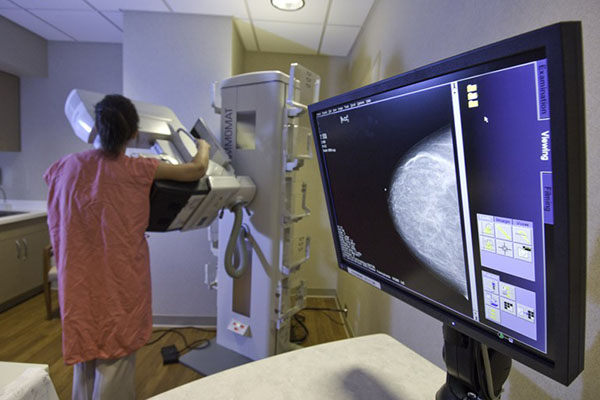
Mammograms are effective in preventing breast cancer from becoming a deadly disease. However, the barriers limiting access to breast cancer screening for many minority and low-income women in the United States worsened during the COVID-19 pandemic, according to a 2021 study.
The news is especially concerning because the study states, "the significant breast cancer mortality rates experienced in both Hispanic and African-American populations are found to be connected to delayed screening."
To offset these disparities, Chester County Hospital collaborated with the Pennsylvania Department of Health's HealthyWoman Program on October 19 to offer free mammograms for women 40 and older at Penn Medicine Southern Chester County.
Organizers selected the location to help make the screening more accessible to the under and uninsured women of the growing Hispanic population in this part of the county. The 10 participants were identified by Penn Family Medicine New Garden, where staff and providers are fluent in English and Spanish.
"One of the things that I love most about my job is seeing how a relatively small act can have a profound impact on a community," says Michele Francis, Director of Community Health and Wellness at Chester County Hospital. "This was one of those instances. We were able to help not only these women but also the families and the community who depend on them."
Jennifer Keith, BSN, RN, OCN, a Breast Oncology Nurse Navigator, has been organizing the CCH-HealthyWoman breast cancer screenings since 2021. The first screening event was held in October 2021 in Fern Hill, a community with a large population of under and uninsured Black women. Eleven women were screened that day.
She describes the screenings as "irreplaceable".
"In southern Chester County alone, there are so many women who don’t have access to healthcare, so they're not being screened," she says. "With breast cancer specifically, early detection is key because treatment can begin before the disease has a chance to progress. The longer it goes undiagnosed, the greater the chances it becomes a larger, more aggressive cancer."
In addition to the mammogram, Keith and her colleague Cindy Brown, BSN, RN, CN-RN, also a Breast Oncology Nurse Navigator at Chester County Hospital – with the assistance of a translator, if needed – were available to coordinate follow-up diagnostic tests for abnormal screening results. Of the 10 women screened, one required a biopsy, which was also provided free of charge, Keith says.
"We provided a simple path for her, where, without this screening, she may not have had any," Keith says.